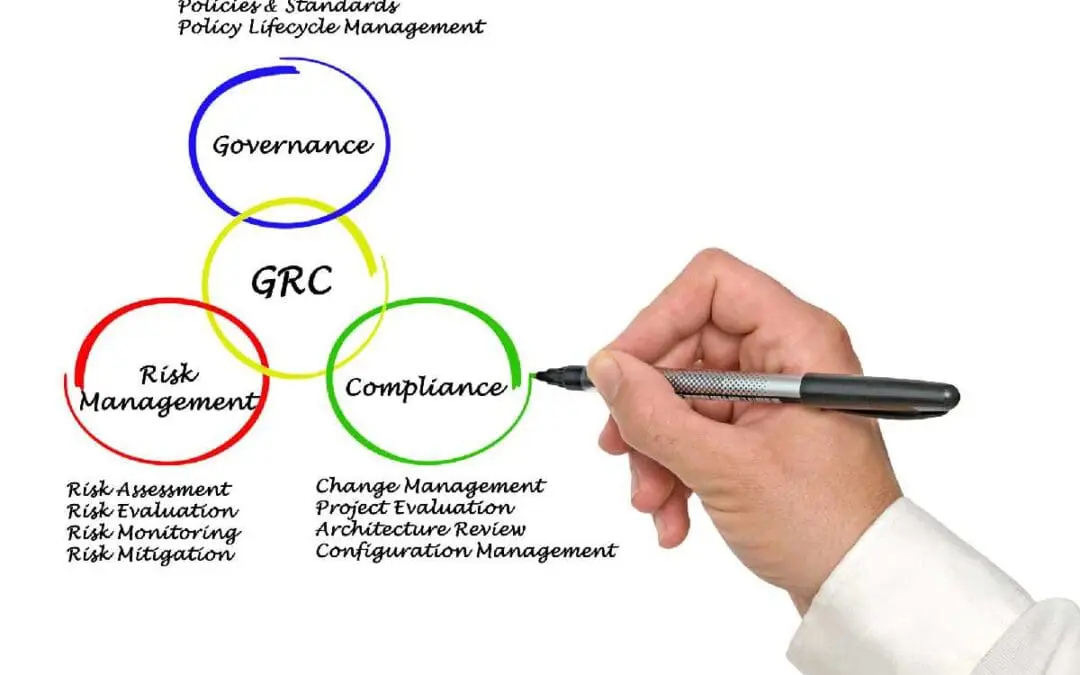GRC Platforms: Why Building Your Own Might Be the Right Choice

Governance, Risk, and Compliance (GRC) are critical aspects of modern business operations. As organizations face increasing regulatory demands and cybersecurity threats, they must effectively manage their GRC activities. Many companies turn to GRC platforms to streamline and centralize their efforts. While off-the-shelf GRC solutions are readily available, there’s a growing trend among businesses to build their own custom GRC platforms. In this blog post, we’ll explore the reasons behind this shift and the advantages of building a bespoke GRC platform tailored to your organization’s unique needs.
The Rise of Custom GRC Platforms
Traditionally, companies relied on pre-packaged GRC software solutions to meet their compliance and risk management needs. These off-the-shelf options offer a one-size-fits-all approach that can work well for some organizations. However, as businesses evolve, so do their requirements. Here’s why more organizations are considering the build-your-own GRC platform approach:
1. Tailored to Your Needs: One of the most compelling reasons to build your own GRC platform is customization. Off-the-shelf solutions may have features you don’t need or lack critical functionalities you require. Building your own platform ensures that it aligns perfectly with your organization’s specific GRC needs and processes.
2. Scalability: As your business grows or your GRC requirements change, a custom-built platform can adapt to these shifts. You won’t be constrained by the limitations of pre-packaged software that might not scale with your organization.
3. Integration: Building your GRC platform allows you to seamlessly integrate it with your existing systems and data sources. This integration ensures that your GRC efforts are based on accurate and up-to-date information from various departments and systems.
4. Cost-Efficiency: While it might seem counterintuitive, building a custom GRC platform can be cost-effective in the long run. With off-the-shelf solutions, you might end up paying for features you don’t use. In contrast, a bespoke platform can be built with a clear understanding of your budget constraints and only include what’s necessary.
5. Full Control: Having full control over your GRC platform means you can make updates and enhancements on your own schedule. You won’t have to wait for software providers to release new versions or rely on their support teams for customizations.
6. Security: GRC platforms often handle sensitive data related to compliance and risk management. Building your own platform lets you implement robust security measures tailored to your organization’s requirements, reducing the risk of data breaches.
Considerations When Building Your GRC Platform
While building your own GRC platform offers numerous advantages, it’s essential to approach this endeavor thoughtfully:
- Clear Objectives: Start by defining your specific GRC needs and objectives. Identify the processes and functionalities you want to include in your platform like controls, policies, plans, people, reminders, dashboards, and links between it all.
- Development Expertise: Ensure you have or can access the technical expertise required to develop and maintain your platform. You may need developers, data analysts, and cybersecurity experts. Often you can ironically use an off-the-shelf environment to custom build a GRC ecosystem including systems like Notion, Sharepoint, or Dynamics.
- Testing and Validation: Rigorously test your platform to ensure it meets your GRC goals and adheres to compliance standards.
- Maintenance and Updates: Plan for ongoing maintenance and regular updates to keep your platform secure and efficient.
- Data Security: Implement robust security measures to protect sensitive GRC data.
- Scalability: Design your platform with scalability in mind to accommodate future growth and changes.
While off-the-shelf GRC platforms have their merits, building your own custom solution can provide a strategic advantage. It allows you to tailor your GRC processes precisely to your organization’s needs, ensuring efficiency, scalability, and cost-effectiveness. However, this approach requires careful planning, development expertise, and ongoing commitment to maintenance and security. With the right strategy, a custom GRC platform can become a valuable asset that empowers your organization to manage governance, risk, and compliance effectively.
